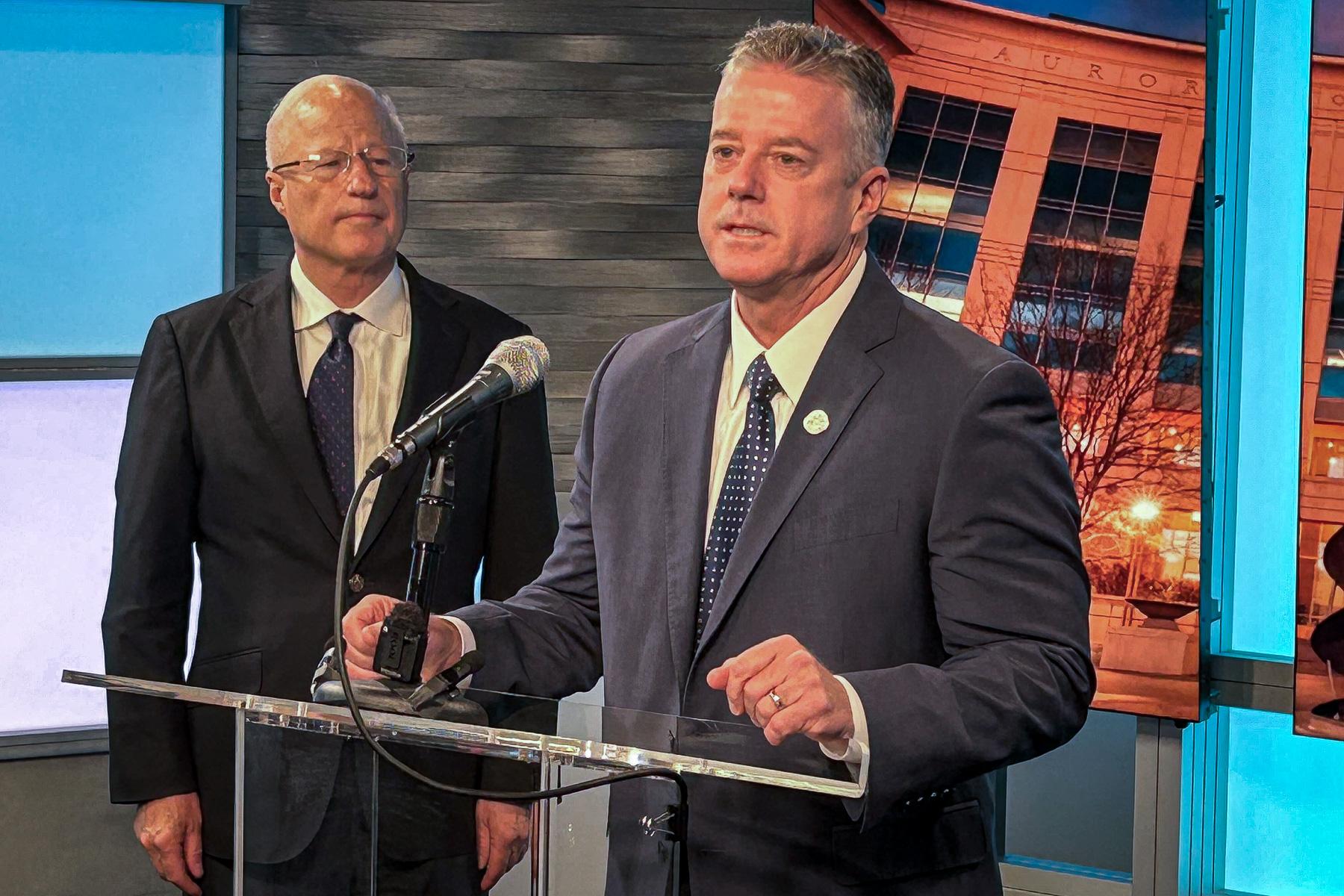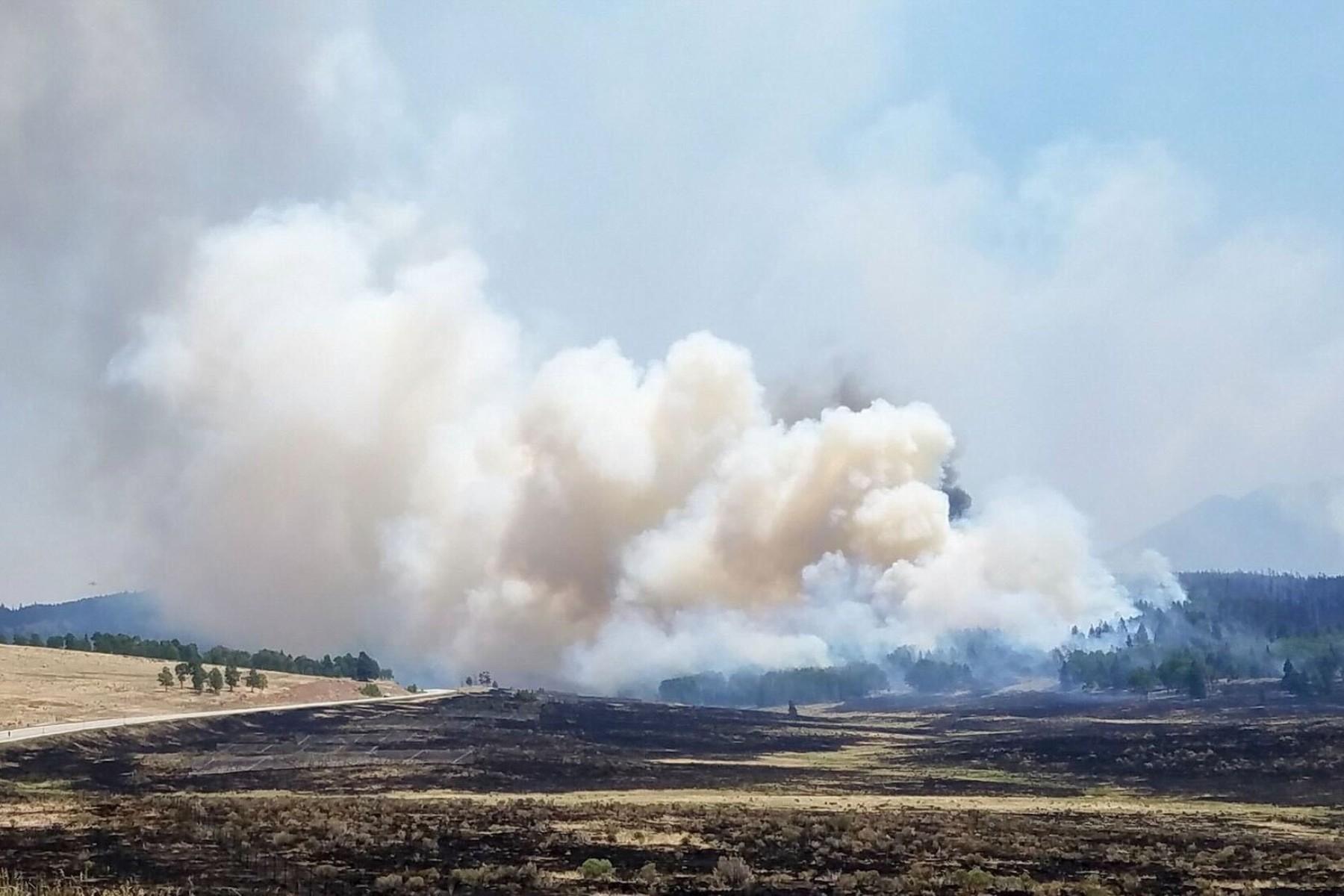
The Aurora Police Department says calls involving the use of force continue to rise. But, a new report from the department says officers are using less lethal methods in those interactions.
The department’s 2023 report on the use of force was released Monday. It details statistics on the use of force between 2021 and 2023. Last year, there were 757 use of force reports in police interactions with people. That’s up from 627 in 2022. In 2023, the proportion of arrests that involved use of force was 11.2 percent. That’s up from 10.4 percent in 2022 but down from 12.6 percent in 2021.
And total arrests in Aurora were up in 2023 — 6,777 in that year compared to 6,016 in 2022 and 4,673 in 2021.
The report found that APD officers used slightly more low-level tactics in 2023 in arresting people. Low-level uses of force accounted for about 83 percent of those reports — a figure similar to how they were deployed in 2021 and 2022. These methods include control holds and take-downs with no minor injuries. The use of lethal methods of force dropped to four instances in 2023, down from 13 a year earlier.
“We recognize as an agency the importance of capturing and analyzing use of force information in the spirit of continuous improvement and enhancing public safety services for our residents,” said Deputy Chief Chris Juul in a statement. “Following the launch of the Online Transparency & Accountability Portal in January, publishing this annual report is the logical next step in our commitment to transparency and broader information sharing with our community.”
Despite the drop in the lethal use of force, APD continues to face heavy criticism on this issue overall — especially in the Black community. Over 300 use of force incidents reported involved those who identified as Black.
The Colorado Attorney General’s Office placed APD under a consent decree following a pattern and practice of racially biased policing in September 2021. The decision came in the wake of the 2019 death of Elijah McClain, a 23 year-old Black massage therapist who died following a confrontation with officers on the way home from a convenience store.
Three trials surrounding McClain’s death revealed that officers deviated from department protocol by using the carotid hold on the unarmed McClain twice. The holds contributed to McClain vomiting in the ski mask he was wearing at the time. McClain later died at the hospital after a lethal dose of ketamine. Two paramedics and an officer were convicted for their roles in the death after three trials. Colorado lawmakers later banned the use of the carotid hold by law enforcement officers.
The latest progress report on the consent decree criticized the handling of the shooting death of Kilyn Lewis. The 37-year-old unarmed Black man died in May from injuries after being shot while a SWAT team attempted to arrest him in connection to an attempted homicide. Lewis had a cellphone and snacks in his hand when officers ordered him to put his hands up.
Later, Arapahoe County District Attorney John Kellner decided not to file criminal charges against the APD officer who shot him, Michael Dieck due to lack of evidence. It was initially sent to a grand jury. But, they declined to hear it. The department later said Dieck didn’t violate any agency policies. Lewis’ family said their hope was shattered following the decision.
“The Aurora Police Department has chosen not to hold Officer Dieck accountable for the life he took. Instead, they have invited him back into the very community he betrayed,” the Lewis family said in a released statement. “With this decision, our pain, already unbearable, has been compounded. Six months of agony has led to an outcome that feels like a second loss, a second death.”
Aurora Police officers continue the use of force the most on members of the Black community. As of Nov. 25 this year, subjects who identified as Black accounted for over 38 percent of uses of force by Aurora PD in 2024. Over 66 percent of lethal or critical uses of force this year have involved people who identified as Black.
Aurora Police Chief Todd Chamberlain addressed the issue at press conferences and organized public discussions since being sworn-in on Sept. 9. At a public event hosted by the Epitome of Black Excellence and Partnership last month, Chamberlain explained the reasoning behind officers not using de-escalation tactics in the shooting death of Kory Dillard. The former combat veteran was shot and killed after pointing a replica assault rifle at officers on Oct. 3.
“Now it's easy to sit here and talk about it being a phone, or yes, now it's easy to sit here and talk about it being a simulated error, air assault pistol or rifle or whatever it is. But at the time when that officer had to make that decision, what was their perspective?” Chamberlain said. “The way we try to improve it is through constant training, through review, through analysis. Again, these force review things that we do, it is to call out the problems that we see.”
The consent decree progress report noted that APD is on the right track in five of seven major areas. One of those areas includes training. The use of force report notes that APD adopted a new Use of Force Policy in August 2023 that included new training methods.
The Integrating Communications, Assessment, and Tactics (ICAT) program was offered and completed by officers in March 2023. The Police Executive Research Forum describes the program as providing officers with tools, skills, and options they need to defuse a range of critical incidents successfully and safely.
Officers also received classroom and online training on the new policy later that summer and scenario-based training that fall.









